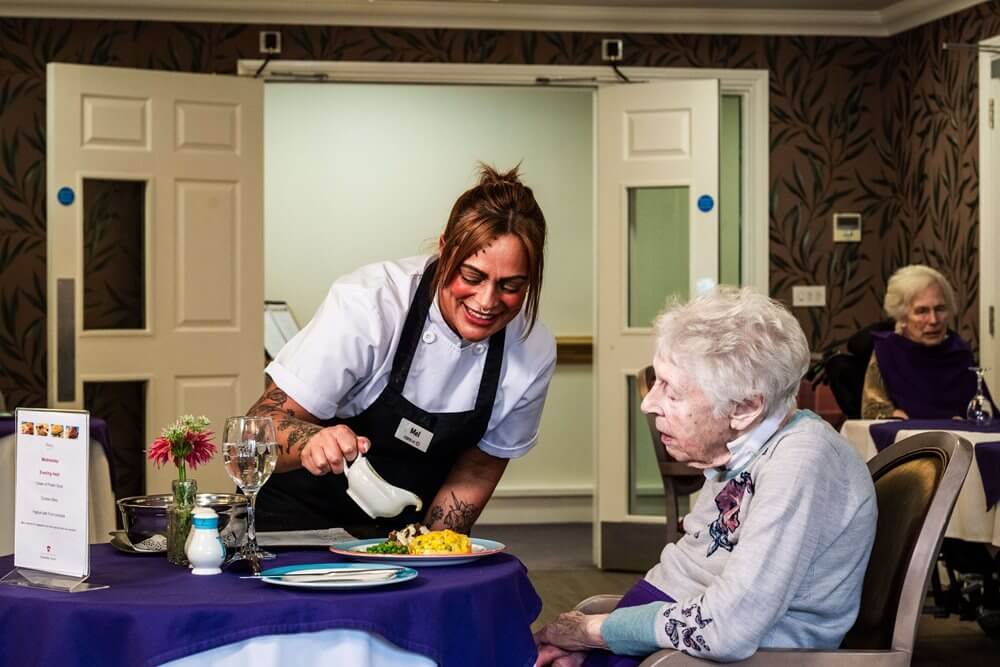
Title: “What Was Your Breakfast Today?” — The Impact of a Simple Inquiry in Patient Care
By: Damane Zehra, Radiation Oncology Resident, Pakistan
Amidst the hustle of ward rounds, flowing IV fluids, monitor alarms, and hastily scrawled charts, a peaceful moment of human interaction can provide healing that no medicine can match. Within the clinical environment, one seemingly mundane question has become a key component of my daily exchanges: “What was your breakfast today?”
At first sight, this might appear as mere small talk—perhaps an opening line at best. Yet, in the field of healthcare, particularly in oncology wards where patients confront significant physical and emotional hurdles, this inquiry paves the way for compassion, trust, and more profound healing.
The Importance of Compassionate Communication
As a healthcare provider, offering a warm greeting and introducing oneself is more than just a polite gesture—it’s the foundation of trust. The way we engage matters. Medical professionals who commence a conversation by diving straight into symptoms may, unintentionally, create a barrier between themselves and the individual in the hospital bed.
Conversely, initiating with something as recognizable and personal as breakfast establishes a sense of normality. It serves as a reminder to both doctor and patient that behind every diagnosis is a human being—someone who enjoys tea, favors paratha over toast, or possibly hasn’t eaten at all. When I inquire about breakfast, patients frequently smile, begin to open up, and feel at ease. That brief dialogue allows us to address symptoms such as nausea or loss of appetite in a more natural and meaningful way.
Beyond Nutrition: A Glimpse Into Well-being
Diet plays an essential role in recovery, particularly for oncology patients. Knowing whether someone is eating—and what their choices are—can quickly indicate their physical and emotional state.
When a patient mentions they had a boiled egg and a paratha, I respond with cheerful affirmations like “Shabash!” or “MashaAllah.” This not only lifts their spirits but also promotes ongoing healthy eating practices. Conversely, when patients report not having eaten, I view it as a concerning signal. The underlying reasons may expose complications such as nausea, altered taste, depression, digestive issues, or even dissatisfaction with hospital meals.
In a resource-limited environment like Pakistan, where many hospitals can’t afford full-time dietitians or mental health professionals, this single question serves as a priceless assessment tool. It acts as an alternative screening method—one that incurs no cost while providing both emotional support and clinical insights.
Making the Hospital Experience More Human
Feeling “at home” in a hospital can significantly enhance healing. This sense of comfort comes not from flat-screen televisions or air conditioning, but from being acknowledged, listened to, and cared for. Patients are incredibly perceptive—they notice emotions, expressions, and tones. Often more vulnerable than the typical individual, they draw strength and encouragement from the atmosphere’s energy.
By expressing genuine curiosity about their daily lives—in this instance, their breakfast—we assert their identity amid clinical systems that frequently reduce them to case numbers or diagnostic labels.
Encouraging Deeper Conversations
Surprisingly, this breakfast inquiry becomes a starting point for dialogue. Occasionally, discussing food reveals underlying reasons for a patient’s inability to eat: personal distress, familial issues, clinical depression, or financial strain. I’ve had numerous bedside discussions that kick off with an omelet and culminate in cathartic revelations about anxiety, grief, or feelings of helplessness.
Not long ago, a young leukemia patient, on his first day in the ward, remained silent when I asked about breakfast. However, his parents soon recounted their challenging journey in securing adequate care due to financial limitations. That exchange not only built their trust but also enabled me to formulate a better plan for supporting the patient both emotionally and nutritionally. The father later expressed, “Kisi doctor ne hum se kabhi itne pyar se baat nahi ki.” (“No doctor has ever spoken to us with such kindness.”) That sentiment reinforced the importance of my inquiry.
An Unforeseen Ripple Effect
Beyond the hospital, this practice has infiltrated my personal life. I inquire about breakfast with my parents and siblings as well. Their responses reveal more than just their food preferences—I gain insights into their moods, stresses, and how their day might unfold. Often, discussing meals—such as sharing how someone enjoyed an egg or missed breakfast altogether—opens avenues for conversations about their well-being.
And in a charming twist, hearing others discuss food frequently makes me feel hungry as well! Ironically, asking patients about breakfast serves as a gentle reminder for me to attend to my own self-care. After all, as caregivers, we also need nourishment—both physical and emotional.
Conclusion: Beyond a Simple Inquiry
“What was your breakfast today?” might appear as an uncomplicated question, but it carries significant weight. It nurtures connection, helps patients feel human, and enables physicians to better understand those in their care.
In a world where healthcare